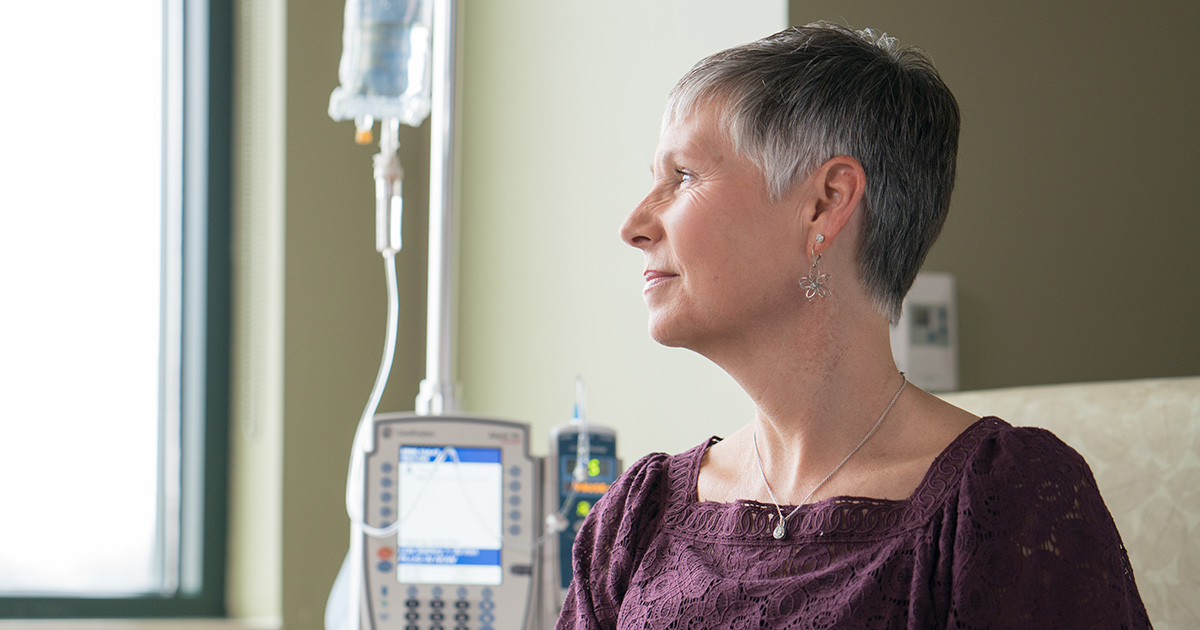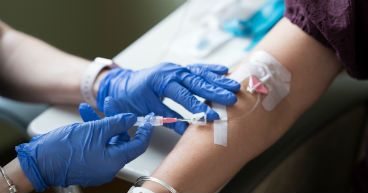
Oncology researchers have long known that gender plays a role in the incidence and prognosis of a number of cancer types. Men are more likely to get cancer than women, but women are at higher risk for specific types of cancer. And while there still is much to learn about how cancer and its treatments affect men and women, a recent large-scale study has shed some light on whether gender factors into how a patient may tolerate chemotherapy and how the treatment may impact the patient’s outcome.
A study of four controlled clinical trials of first-line chemotherapy in esophageal and gastric cancer patients concluded that men and women may experience the same rates of toxicity from chemotherapy, but they experience “significant differences” when it comes to side effects. Women, the study found, more frequently experience hair loss, nausea, vomiting, diarrhea and mouth ulcers. Men, on the other hand, experience a greater incidence of peripheral neuropathy—weakness, numbness and pain, typically in the hands and feet, caused by nerve damage. Women also more frequently experience “serious adverse events," characterized in the study as “potentially life-threatening complications [that] often require hospital admission.” The data showed women tend to experience more infections due to low white blood cell counts.
Research on the role gender plays in how patients experience cancer is in its infancy, and the “clinical relevance” has yet to be established. But study author Dr. Michael Davidson, of London’s Royal Marsden Hospital NHS Foundation Trust, noted that while sufficient data has not yet been established to “support alternative chemotherapy dosing strategies for men and women, it is useful for clinicians to be aware of such findings in order to refine their treatment in other ways.” If an oncologist knows women are more prone to nausea or diarrhea, for example, he or she may educate patients in advance and direct them to supportive care.
Another difference: Communication
Men and women have many differences when it comes to cancer, says Shayma Kazmi, MD, Medical Oncologist & Hematologist at Cancer Treatment Centers of America® (CTCA), Philadelphia, including how open they are in sharing experiences with side effects from chemotherapy and other treatments. Women, she says, are typically more comfortable than men talking to their doctors.
“Women tend to elaborate more on their side effects, specifically the physical side effects of nausea and gastrointestinal discomfort,” Dr. Kazmi says. “I’m a female, so I don’t know if it has to do with them feeling more comfortable. Men who have diarrhea may never tell me. Their definition of diarrhea may be different. They may think it’s only liquid, not that they’re going multiple times a day.”
Women are also much more comfortable discussing how cancer and treatments may be affecting their sexuality, Dr. Kazmi says, adding that men tend to voice fewer complaints. “Their wives, sisters or mothers do a lot of speaking for them and tell me what’s going on,” she adds. “Women are more open to discussing depression, anxiety, sadness, worries. They’re comfortable getting emotional in the room with me. With men, you have to pull those things out.”
New studies are just now allowing doctors to document the differences in how men and women experience cancer and its treatments. For decades, white men comprised the majority of patients enrolled in clinical trials, Dr. Kazmi says. As a result, the data didn’t necessarily translate to women or people of color.
“We know there are metabolic differences between men and women,” she says. “There are different gene expressions and different ways the sexes metabolize medications, but there are not enough statistics yet to act upon those differences.”
Dr. Davidson voiced similar sentiments, noting that the medical establishment is only now “beginning to understand some of the complex cellular, molecular and metabolic differences between the two sexes [that] influence both cancer development and response to treatment.”
Learn more about differences between cancer screenings and diagnostics.


